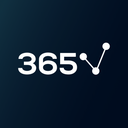Data science is a rapidly advancing field expected to grow even more in the coming decade. For this reason, the demand for qualified professionals is at an all-time high, making a career in the field a very lucrative option. Can a computer science education provide a better path to becoming a data scientist? Let’s examine the difference between a data science and a computer science degree.
Both are fantastic degree choices for those looking to break into the field. So, if you’ve already chosen one over the other, don’t worry—you’re one step ahead. But data science and computer science degrees each carry their pros and cons.
This article addresses the advantages and disadvantages of each degree concerning the specific data scientist career path. Afterward, we’ll evaluate the better choice by creating a head-to-head comparison.
Feel free to watch our video about data science vs computer science degrees or scroll down to keep reading.
Тable of Contents
- What Does a Data Science Degree Cover?
- What Are the Advantages and Disadvantages of a Data Science Degree?
- What Does a Computer Science Degree Cover?
- What Are the Advantages and Disadvantages of a Computer Science Degree?
- Data Science vs Computer Science: How Do the Degrees Differ?
- Data Science vs Computer Science: Which Is the Best Degree for a Data Scientist?
- Data Science vs Computer Science: Next Steps
What Does a Data Science Degree Cover?
Data science is a multidisciplinary field encompassing several domains, which university programs accommodate with various curriculums that train students in the essential skills data scientists use in a real-life working environment. Consider the following common topics that data science degrees cover most often:
- Statistical and probability theory, such as regression analysis, hypothesis testing, Bayesian inference, statistical modeling, mathematics, etc.
- Programming using languages like Python, R, or SQL
- Data analysis and manipulation methods for working with different types of data and extracting insights from large datasets
- Data visualization fundamentals to represent data in a cohesive format and visualize important patterns using Tableau, Matplotlib, Power BI, etc.
- Machine learning and deep learning algorithms, such as regressions, decision trees, random forests, neural networks, etc.
This concentration is designed to give you a complete overview of the field and train you in the most commonly used tools, so you can graduate with the practical capability to solve real-world business problems.
What Are the Advantages and Disadvantages of a Data Science Degree?
Choosing an academic major is challenging; you must be careful because you’ll be investing a lot of time and money. And any educational program has pros and cons. So, it’s essential to consider both sides of the coin when contemplating whether to pursue a data science degree vs a computer science one.
Advantages
Equips You with Practical Skills
Pursuing a data science degree provides students with a comprehensive understanding of the technical skills and knowledge required for data science, including programming languages, statistics, and machine learning.
This is crucial because some excellent statisticians lack a coding pedigree, while some programming enthusiasts don’t know how to extract insights from a dataset. Obtaining such a degree would ensure you have all the appropriate abilities.
Boosts Your Resume
One of the most significant pros of completing a data science program is the signaling. What do we mean by this? The relevant education on your resume signals to employers that you understand the theory behind data science and can implement it in a real-life environment. Typically, degrees from traditional academic institutions add prestige and credibility to your profile.
Indicates Your Interest
A data science degree also indicates your interest in the field to potential employers—who then needn’t be concerned about your programming skills, analytical understanding of statistical results, or data-storytelling abilities.
Provides Networking and Internship Opportunities
A traditional data science program allows you to connect with professors, faculty, peers, and industry experts. Through practical workshops, guest lecturers, or events and conferences, you can build a professional network and open the door to new opportunities.
Moreover, higher education institutions have an excellent network themselves, as well as career guidance services. Your school might partner with firms open to taking on interns or help you find your data science internship.
Disadvantages
Availability
One significant con to pursuing a data science major is its availability. Since the field is relatively new, university programs can be scarce at undergraduate or graduate levels. Of course, as the field continues to grow, universities open more program opportunities. But they’re still not quite widely available as computer science degrees. As a result, many students choose alternative disciplines, such as computer science, statistics, or economics.
Rapid Advancements
Data science is a field that’s evolving rapidly due to the continuous development of new and big data technologies, data visualization techniques, tools for data analysis and storage—such as cloud computing. Data scientists must stay current on these developments to maintain their competitive edge in the job market.
Data science graduates may need to continue their education even after a degree program by attending workshops, conferences, and online or supplementary courses to bridge the gaps in their skillset.
Theory over Practice
Another disadvantage of data science vs computer science regarding university degrees is that, in some cases, data science programs may focus more on theoretical concepts and principles rather than practical skills, such as coding.
This can disadvantage students seeking data science positions because employers typically opt for candidates with practical experience.
Niche Specialization
Before making your final decision, be sure you wish to become a data scientist. Other fields like statistics or computer science provide greater flexibility in professional development because they allow you to alter your career trajectory if data science differs from what you imagined. And you won’t need to re-specialize and acquire new skills. For example, a computer scientist can easily transition into a data architect or data engineer job with the skillset they already have.
What Does a Computer Science Degree Cover?
A computer science degree covers various topics related to computer technology and its applications. Similar to data science, the specific curriculum depends on the university and degree level, but generally, you’ll study the following topics:
- Coding syntax and structures of programming languages like C++, Java, and Python
- Web development of applications, including HTML, CSS, JavaScript, and server-side programming languages
- Design, implementation, and query processes of relational databases, including SQL and other database management systems
- Software engineering, including software design principles, testing methodologies, and project management
- Data structures, such as maps, stacks, and queues, as well as sorting and searching algorithms
Some institutions have even started including modules on data science, machine learning, and artificial intelligence in their computer science programs, which is undoubtedly an advantage for those aspiring data scientists who wish to pursue this educational path.
What Are the Advantages and Disadvantages of a Computer Science Degree?
Choosing a major is a challenging process. You must consider financial costs, time, university ranking, course curriculum, and career progression opportunities. And when comparing data science vs computer science, you must carefully examine the pros and cons of each degree program and whether they suit your needs.
Advantages
Reputable Credentials
Computer science degrees are widespread and reputable. Employers have a general understanding of the program and know what to expect regarding capabilities. Recruiters look favorably upon graduates who majored in computer science. So this gives you a competitive edge when applying for internships at a university or full-time positions after graduation.
Strong Programming Knowledge
To execute their tasks, data scientists must be proficient in Python, R, and SQL. And computer science brings excellent flexibility when it comes to programming. It teaches various coding languages and syntax and lets you learn new ones quickly. Essentially, knowing Java or C++ will make it simpler to learn Python if your degree doesn’t cover it.
In addition, you’ll also study some discrete math. So, a computer science major hits many data science buttons, doesn’t it?
Problem-Solving
As a computer science student, you’ll learn to approach tasks systematically and analytically and solve issues efficiently. Through practical exercises and projects, computer science programs build and enhance your problem-solving skills. In turn, these are crucial for data scientists as the role heavily revolves around identifying problems, gathering and analyzing data, and developing solutions.
Career Path Flexibility
A computer science graduate can transition into a data engineering role , for example, because of their proficiency in database management.
A degree in computer science provides a strong foundation for a range of careers in the technology industry, not just data science. This can be advantageous for students interested in exploring different tech sector areas.
Disadvantages
Limited Domain-Specific Knowledge
Depending on their industry, data scientists often need specific domain knowledge in finance, healthcare, or marketing. And while computer science programs may offer some domain-specific courses, they don’t provide the same level of availability.
More Programming than Practical Business Training
Most computer science programs don’t emphasize training with real-world business cases. Data scientists need to come up with unique solutions based on data and communicate them to non-technical stakeholders. Therefore, students transitioning from computer science to data science might need supplementary courses to gain business insight and improve communication skills.
Developing a Discreet Mindset
Some computer science students develop a distinctive way of thinking. But what do we mean by that? Let's elaborate with an example. Algorithms often work because the result of one action always leads to another. It’s not the action that follows that’s important in this case, but we always know what is next.
But this isn’t always the case in data science. Often, one action means that we have a 60% chance of event A occurring and a 40% chance of event B occurring. So, it’s necessary to adopt a more probabilistic mindset, which computer science graduates might initially find difficult because everything needs to be 100% certain in their realm of work.
Market Oversaturation
Employers like candidates with computer science degrees because they demonstrate foundational skills necessary for the data science position. At the same time, however, there’s an overabundance of computer science graduates on the job market, which leads to intense competition in an already competitive field. As a result, academic computer science credentials are less of a signal today than it was a few years ago.
Data Science vs Computer Science: How Do the Degrees Differ?
Now that we’ve discussed each degree’s pros and cons, let’s compare. What’s the difference between data science and computer science?
Computer science is more widespread, so limited course availability isn’t a big concern. Virtually all elite institutions offer it as a concentration. Moreover, this degree equips you with a diverse skillset and provides more career path flexibility for a computer scientist, data scientist, data engineer, etc. As a result, you gain a more significant competitive advantage in the market.
Of course, this degree doesn’t equip you with the business insight necessary for a data scientist role because computer science is primarily programming based.
Meanwhile, a data science program teaches you the specific tools needed for the profession. Plus, you don’t need to devote time and effort to acquire skills outside your professional interests. In addition, as data science is often business related, a degree in this subject would include business training and stakeholder communication to prepare you for the job.
But it’s a niche major that might limit your possibilities of a future career change as you’re more likely to become a data scientist or, eventually, machine learning engineer.
Data Science vs Computer Science: Which Is the Best Degree for a Data Scientist?
Now that we’ve examined both options, let’s see which degree is better, data science or computer science.
While data science is a growing profession, computer science as an option can be more practical because it offers a wide range of career opportunities. Data science education can limit you to only becoming an expert in the related field. According to the data from the last several years, this pattern may eventually shift; however, you might be already working in the field by then.
A Self-Designed Major
In many places across the US—but less so in Europe and Asia—it’s possible to change your concentration to an interdisciplinary major. These are the so-called self-designed degrees, incorporating various courses across several departments to create a custom curriculum that answers specific needs.
Data science combines data analysis, coding, data storytelling, and more. Courses across these disciplines should be enough to construct sufficient and practical training. You can incorporate math or statistics with computer science and social sciences like economics to create your data science degree.
And the best part is that you won’t need to learn subjects you don’t need. By selecting only the relevant math, developing aspects of computer science, and the policy-based aspects of economics, you’re left with the top data science skills you need to succeed.
But before you try this self-designed data science major, you must know you can’t select random courses to construct such a major. Your choice needs to be strategically sound and beneficial for your future career. We advise you to research the field and devise an actionable plan before declaring your courses.
Thankfully, employers value experience and skills more than academic credentials. So, even if you decide to academically pursue data science vs computer science, there are ways to supplement your learning journey. Acquiring relevant certification is an excellent way to signal to employers that you’re serious about your data science career goals.
We highly recommend our Data Scientist Career Track—a clear-cut roadmap that teaches you the statistics and probability theory fundamentals to more advanced machine learning specialization. You’ll also boost your programming for data science with Python and SQL. After completing the track, you’ll receive an industry-recognized Career Track Certificate that you can use to strengthen your data science job applications.
FAQ
Data Science vs Computer Science: Next Steps
The verdict for data science vs computer science is out. The degrees are similar, but there are also vital differences to consider, and the decision ultimately depends on your personal needs and career goals.
If you’re looking for a more flexible learning path, the complete 365 Data Science program is ideal—access self-paced courses led by renowned industry experts. You'll learn from the basics to advanced specialization by doing many practical exercises and real-world business cases.
Kickstart your journey with our Introduction to Data and Data Science, which teaches essential data science terms and processes.






